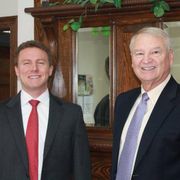
Individuals and business owners looking for a way to lighten their debt burdens might consider either Chapter 7 or Chapter 13 bankruptcy. While both options provide the legal protection of an automatic stay, there are significant differences. To help debtors decide which route is better for them, the information below explains how these debt relief options work.
Understanding Chapter 7 & Chapter 13 Bankruptcy
Chapter 7
Chapter 7 bankruptcy is often called straight bankruptcy. Individuals and all types of business entities can file Chapter 7, which gives them a fresh start without repaying any debts. A relatively quick debt relief option, Chapter 7 bankruptcies are usually completed and debts discharged within 6 months of filing petitions. Chapter 7 is a good option for debtors with little or no income, few or no assets, and a large amount of unsecured debt, such as medical expenses and credit card bills. Bankruptcy trustees sell any non-exempt assets and use the money to pay creditors, a process known as liquidation.
 Chapter 13
Chapter 13
This type is often called a wage earner plan. Only individuals and sole proprietors can file Chapter 13 bankruptcy. A long-term debt relief option compared to Chapter 7, Chapter 13 plans take three to five years to complete. Filers submit payment plans for court approval, and repay portions of their secured and unsecured debts. When plans end, the court discharges any unpaid debt. This option helps people with steady incomes catch up on defaulted payments and keep property, such as homes and vehicles. Chapter 13 works well for non-dischargeable debts, including student loans, back taxes, and child support.
Based in Dalton, GA, the skilled and compassionate bankruptcy attorneys at Hurtt & Johnson, LLC offer options for debt relief, including Chapter 7 and Chapter 13 bankruptcy. Forty years of legal experience and personalized attention give peace of mind to residents of northwest Georgia who are struggling with business or personal financial burdens. Get the long-term financial relief you need now. Call (706) 226-5425 today for a free consultation appointment, and for more information, visit their website.
About the Business
Have a question? Ask the experts!
Send your question

